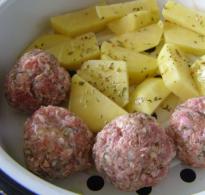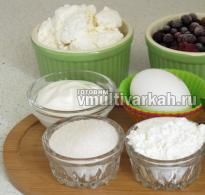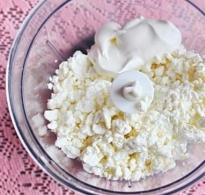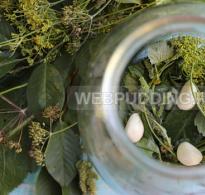How to store vegetable and fruit juices? How long freshly squeezed juice is stored: shelf life of fresh juices.
Berry, fruit, vegetable juices, as well as their mixtures, contain a huge complex of vitamins, microelements, sugars and other useful substances for the human body.
All of them are easily absorbed by our body. Canned, but prepared according to the rules, juices also retain many useful substances, and they can be used in the winter, replenishing the body's "vitamin pantry".
Today the site will tell you how to make juice, prepare it for future use and store it.
How to make freshly squeezed juice
Juice can be obtained from almost all berries, fruits and many vegetables and spices. With the help of modern juicers, you will get the maximum amount of juice from fruits and cake (pulp), which is also a storehouse of useful substances.
Juice technology:
- Choose ripe and healthy fruits.
- Wash them, remove the stalks and sepals, dry them. Cut large fruits into pieces - this way the juice will separate better.
- Put the prepared fruits in the juicer and get the juice. Do not rush to throw away the cake. It can be poured with boiling water, let it brew and strain. Then use for making fruit drink, jelly or jelly.
How to store fresh juices
Freshly squeezed juice (fresh) is not stored for long. It is better to drink the juice immediately or within an hour after preparation, keeping it in a clean container with a tightly closed lid, in a cool, dry place. For this, glass jars or bottles of various sizes (from 0.3 liters to 1 liter) with screw caps are perfect.
What are the benefits of freshly squeezed juices? Fresh juices, or juices, prepared a minute ago from fresh and juicy fruits and vegetables, are a panacea for all diseases, an opportunity to enrich your weakened body with vitamins, microelements and minerals.

At the same time, the stomach does not experience stress, as when digesting juice along with fiber.
Can you drink freshly squeezed juice immediately after making it? Yes, it is possible and even necessary.
The exception is beetroot juice, which is recommended to be consumed after four hours of settling. The norm of freshly squeezed juice for a healthy person is 1-2 glasses per day. Dietitians consider drunk juice a separate meal and therefore it is better to drink it separately from other products and in the interval between main meals.
It is advisable not to cook freshly squeezed juices more than you can immediately drink. This elixir of youth and beauty begins to lose its healing properties after 15-20 minutes of contact with atmospheric oxygen. Therefore, we squeezed juice for the family, pour it into glasses and make sure that everyone drinks it at once.
Dilute very sour or very sweet juices with boiled water, rinse your mouth after juice to preserve tooth enamel. Freshly squeezed juices are very aggressive to enamel. Juices rich in vitamin A, such as carrot, fortify with cream for perfect absorption of this vitamin.

Storage of freshly squeezed juice is impractical, but it is possible to store some of it in the refrigerator for up to 2 days without adding sugar or cream. Pour it into a glass dish and squeeze the lemon juice on top. You can add a little citric acid or ascorbic acid from darkening during oxidation.
For a long time, only pasteurized juice can be stored, that is, heated to 90 degrees and poured into sterile jars.
The shelf life of such juice in a cool place is a month. Not much will it differ from the store, but as an option for stocking homemade fruit, it will do. Try to use this juice as soon as possible.
Quick answer: no more than a day in the refrigerator.

Freshly squeezed juice is obtained by processing fresh vegetables or fruits. There are special juicers that can be used both at home and in various establishments - with their help you can get juice in just a few minutes.
Many people believe that freshly squeezed juice is completely safe for health and extremely useful, as it contains a lot of vitamins and nutrients.
This is true, but only in part, since the use of freshly squeezed juice in large quantities can cause significant harm to the body. In addition, let's not forget that with certain diseases, the use of juice is contraindicated. For example, with an exacerbation of gastritis or an ulcer, sour juices are prohibited.
Let's say you squeezed a liter of orange juice. In the morning, drinking a glass of this nectar will be a joy to every member of the family.
But what if you live alone or no one else likes orange juice? Do not drink it by the liter. It is better to try to store the drink in the refrigerator.

The main problem is that freshly squeezed juices must be drunk within half an hour after preparation, since during this time the concentration of vitamins in them will be maximum.
In the refrigerator, the juice will be stored for no more than a day, after which it is not recommended to drink it in order to avoid poisoning. And in order to preserve all the useful properties in it, pour it into a container, preferably opaque, and close the lid tightly. The shelf life will remain the same - a day, but the benefits of such a drink will be much more.
By the way, ordinary juices in the package are also not recommended to be stored in the refrigerator for more than a day after opening.
You will need
- - juicer or blender
- - fine sieve
- - gauze
- - grenades
- - carrot
- - ripe berries
- - beet
- - citrus fruits (orange, tangerine, etc.)
- — bananas
- - cream
- - olive/vegetable oil
- – peaches
There are several ways to get freshly squeezed juices: using a blender, juicer or by hand. However, each method has its own advantages and disadvantages. An electric juicer, for example, is faster, but has metal parts that destroy most vitamins on contact. Manufacturers are constantly improving the quality of juicers, but it is not possible to check the safety of vitamins when making juice at home. Manually, fruit and vegetable or berry pulp is rubbed through a sieve. Some housewives use gauze: they wrap the pulp in a cloth and press it with their hands over the container. This is a rather long procedure that requires patience and skill. An excellent option for preparing a variety of cocktails is a blender. It allows you to mix fruits, berries or vegetables to a liquid consistency, while maintaining their beneficial properties.
The champion in the content of vitamins is pomegranate juice.
It is rich in B vitamins, ascorbic acid and iron. A glass of freshly squeezed juice in the morning for 3 months is able to restore the optimal level of hemoglobin in the human body. Pomegranate also has antioxidant, anti-inflammatory, and antipyretic properties and can help you recover from a serious illness or surgery.
Before pressing, pomegranate seeds must be thoroughly peeled and peeled. Since pomegranate juice in concentrated form has a bitter-sour taste, it is recommended to dilute it with sweetened water in a ratio of 1:4 (one tbsp.
water for 4 tbsp. l. juice).
Of the vegetable juices, the most useful is carrot juice. It contains a lot of beta-carotene, potassium, calcium, cobalt and other minerals, as well as B vitamins. Carrot juice improves the functioning of the visual apparatus, boosts immunity and fights skin problems. Also, a carrot cocktail is useful for nursing mothers, as it improves the production and quality of breast milk. In order for the vitamin complex to be better absorbed, carrot juice should be combined with cream or 3-5 drops of vegetable / olive oil. To normalize vitamins in the body, it is recommended to drink at least 250-500 ml of fresh juice per day.
Apple juice has the lowest calorie content with a variety of vitamin composition.
Citrus fruit juices (orange, grapefruit, etc.) have an invigorating effect. They are rich in folic acid, vitamins C and P.
Daily consumption increases the body's resistance to infections, relieves fatigue and tones the blood vessels. Grapefruit juice is useful for weight loss. However, the acids contained in citruses irritate the stomach, so such juices are contraindicated for people with gastrointestinal diseases (gastritis, ulcers, etc.).

For constipation, freshly squeezed beetroot juice is used. It is also a storehouse of vitamins, but it has a rather specific taste.
l. another). Frequent consumption of beetroot juice in its pure form can cause dizziness and high blood pressure.
For a nutritious and healthy breakfast, try a smoothie (from English smooth - “homogeneous, soft, smooth, pleasant”) - a thick drink made from mixed fruits, berries and vegetables. The basis for any smoothie is bananas, peaches, 3.2% fat milk or cream.
From berries use raspberries, strawberries, currants or lingonberries. Oat bran is a great addition to smoothies. A thick drink envelops the walls of the stomach and maintains a feeling of satiety for a long time.
Related videos

note

How long freshly squeezed juice is stored depends on the type of fruit from which it is squeezed and the temperature of the place where the resulting drink is stored. The need to preserve freshly squeezed juice arises if the drink could not be drunk completely.
People often make their own juices from fresh vegetables and berries. Due to this, almost all vitamins and minerals are preserved in their natural form. Consider how to store freshly squeezed juice, what are the expiration dates of various drinks.
How long can juice be stored?
With long-term storage, there is a gradual deterioration in the quality of any product.
This also applies to freshly squeezed juices. Doctors recommend that patients drink no more than 750 ml of fresh juice per day (250 ml 3 times a day). Therefore, you should cook no more than 1 glass for each meal.

Sometimes it is required to dilute a concentrated drink with water, but it is not necessary to consume more than the specified volume, since there will be practically no benefit to human health.
If something remains, for example, 1/5 of the total volume of the drink, then this liquid is most often left for storage in the refrigerator.
Homemade juices have a different shelf life. How long can these liquids be stored in the refrigerator? It all depends on the vegetable or fruit from which this or that drink was obtained:

- Apple juice darkens when stored in the refrigerator for 5-6 hours. It contains a lot of iron, which oxidizes when exposed to air. To prevent this from happening, it is recommended to add ascorbic acid to the liquid or squeeze 4-5 drops of lemon into the drink.
- Carrot juice is best drunk immediately after preparation for 10-15 minutes. But if you get a lot of liquid, then you need to pour the rest into a bottle, close it well. After that, the vessel is taken out into the cold into a dark room or cellar. The shelf life of the juice will last up to 48 hours.
- When preparing fresh beets, it is kept (infused) for 40-60 minutes before use. After that, the liquid is diluted with water and drunk. The rest is stored in the cold for 2 days.
Some people are interested in whether and how much cabbage juice can be stored.
It should be drunk immediately after preparation, because it quickly deteriorates.
If freshly squeezed juice is made from berries, how long such a liquid is stored depends on the type of fruit.
For example, raspberry, grape, peach, strawberry and similar berry drinks will ferment quickly if kept warm. In the cold, their storage time increases to 24 hours. To increase the storage period, you can add up to 15 drops of ascorbic acid or lemon to 500 ml of squeezed liquid.
Cherry, currant, pomegranate, lemon, orange and tangerine drinks can be stored for up to 2 days in the cold, because these fruits contain an acid that serves as a preservative.
Under what conditions should the liquid be stored?
In the event that there is a lot of freshly squeezed berry or vegetable juice left, it must be placed in a vessel with a tight-fitting lid, and then placed in the common chamber of the refrigeration unit or take the container to the cellar (cold room).
The utensils used for storing liquids should be made of ceramic or glass.
It is not recommended to use plastic or metal containers, because they accelerate the oxidative processes in the liquid.
The lid of the vessel or cork (if the drink is filled into a bottle) can be made of plastic. The main thing is that they fit snugly against the walls of the vessel.

You can try to save vegetable or berry juice by freezing. Then the liquid is poured into a glass container, but not to the edge of the container. There remains a small air gap, which is needed to account for the expansion of the volume of the drink during freezing.
The container is placed in the freezer, and if necessary, removed, the liquid is thawed for consumption. Although this storage period increases, many vitamins and other useful substances are lost.
You can apply pasteurization.
The squeezed liquid is heated to + 85-90 ° C, and then poured into jars or bottles. Vessels are tightly clogged. In this form, you can store any juice for 30 days.
If during this period it was not possible to completely drink the prepared berry or vegetable drinks, then sugar is added to them, making the usual canning. This concentrate can be stored for 12 months. Before use, it is diluted with clean water and drunk as a fruit drink.
It is not always possible to drink full juice right away, especially if there are children at home who often like to underdrink and undernourish. Each member of the family habitually puts his unfinished juice in the refrigerator, but few people know how long it can be stored there. When choosing a product, the buyer looks at the expiration date, and often neglects the shelf life in the open form.
How to keep juice in the refrigerator
In supermarkets, juice is presented in a wide range for every taste and is divided into types according to:
- taste qualities (from apples, pears, oranges and other fruits, vegetables);
- purpose (children, for children under one year old, ordinary);
- packaging features (tetrapack, plastic box, glass);
- price.
Most often, they are interested in how to store open juice from tetrapak in the refrigerator. In such boxes, juice is bottled at many well-known manufacturing companies:
- baby food;
- products for nursing mothers;
- for the bulk of the population.
The safest and most beneficial for health will be children's juice, which is most often found in a tetra pack. Moreover, such a box is often on the shelves of the supermarket, and not in the refrigerator. Due to the special packaging, the juice can stand and not deteriorate without refrigeration in accordance with the period indicated on it. That is why in shops juices in tetra-packs are not put in the refrigerator.

However, you can store already opened juice in the refrigerator for only a day, as indicated on the package. According to many reviews, tetrapak juice can stand for a whole week without affecting health later. It should also be taken into account that the longer an open drink is stored, the less vitamins remain in it.
Research scientists
If finances allow, it is better to buy juice in glass. It has a number of advantages:
- You can see the contents of the package (there are times when the juice becomes moldy in the tetrapack, and the buyer, not knowing about it, can give a drink to a child).
- Worldwide research by scientists has proven that glass packaging is the safest for human health and the environment.
- In such a package, you can pour straight-pressed juice, which is more beneficial for health.
- The method of preserving juice in glass has been used since ancient times.
Scientists speak quite critically about tetrapack packaging. The inner part of such containers is represented by an alloy of various metals, which, when interacting with juices, can oxidize and release hazardous substances. Many doctors also note a connection with an increase in acetone in children and the juice from the tetrapak drunk the day before.

Juice in a plastic container
Another type of juice bottling in production in recent years is the bottling of the drink into plastic bottles. An ignorant person, an ordinary consumer, treats plastic with caution. However, it is necessary to delve deeper into this issue in order not to worry about health safety after drinking a drink from plastic containers.
In accordance with international control in the field of baby food, for example, it is forbidden to pour and store juice for babies under one year old in a polycarbonate container in the refrigerator. It is necessary to use dishes made of polypropylene.
Scientists have found that the function of procreation is greatly impaired due to the poisonous substance (bisphenol A) in polycarbonate. That is why it is impossible to store, including an open drink in the refrigerator, in such a container. An open box of juice in the refrigerator is also exposed to various microorganisms with the contents, in addition to the carcinogens themselves in the drink.

Everything is kept the same
It is widely believed that you can keep food longer by lowering the temperature in the refrigerator. At the same time, not everyone looks at the manufacturer's instructions for how long it is allowed to keep the juice open. Before drinking a drink, people rely on its taste: sour or not, fermented or moldy.
However, most manufacturers indicate on the box that you can store open juice in the refrigerator for only a day. There is also an opinion among consumers that if you pour a drink from a plastic bottle or a tetra pack into a glass container, the contents will be stored longer. This common misconception is dispelled by chemists and biologists.

The storage of an open drink does not depend on the type of packaging or the temperature in the refrigerator. The period indicated on the packaging by the manufacturer is how long the product should be stored, according to scientists. You can not drink from the neck of the bottle, so that a large number of microorganisms, along with saliva, do not get inside the drink and lead to rapid souring of the product.
Many housewives prepare freshly squeezed juices at home; vitamins, minerals and acids that are useful for children and adults are preserved in such drinks. Juices can be obtained from many fruits, vegetables and berries, but their shelf life may vary. It is better to drink the entire product, as much as it is, immediately after squeezing. But it happens that the drink remains, then the question arises of how to store it and for how long.
Shelf life
 Long-term storage spoils the quality of the product: the percentage of vitamins and minerals decreases, the taste and color may change. Nutritionists recommend drinking 0.25 of fresh juice per day three times a day and more than a glass of liquid at a time - do not cook. Sometimes the pressed concentrate can be diluted with clean water. It makes no sense to use more than the specified volume - they will not bring an additional effect. Leftovers can be drunk later, although some of the benefits will be lost.
Long-term storage spoils the quality of the product: the percentage of vitamins and minerals decreases, the taste and color may change. Nutritionists recommend drinking 0.25 of fresh juice per day three times a day and more than a glass of liquid at a time - do not cook. Sometimes the pressed concentrate can be diluted with clean water. It makes no sense to use more than the specified volume - they will not bring an additional effect. Leftovers can be drunk later, although some of the benefits will be lost.
Juices have different shelf life. It is best to drink them within 10-15 minutes after preparation, you can leave them in the refrigerator for several hours. But the products will not remain in their original form, for example, apple juice will darken, because it contains a lot of iron, which is oxidized under the influence of oxygen. If you pour it into a glass bottle and close it tightly, then it will stand for several hours, but you will need to keep it in the refrigerator. To prevent apple juice from becoming too dark, you can add a few drops of lemon or ascorbic acid to it.
 Carrot juice is better to drink immediately. But if you did a lot at once, then closed in a bottle it will last a maximum of two days, provided that it is stored in the cold and in the dark. Cabbage juice is not stored at all - you need to drink it right away, and it is recommended to keep beetroot for 40 minutes, and use it only infused and diluted, you can store it in the refrigerator for no more than two days.
Carrot juice is better to drink immediately. But if you did a lot at once, then closed in a bottle it will last a maximum of two days, provided that it is stored in the cold and in the dark. Cabbage juice is not stored at all - you need to drink it right away, and it is recommended to keep beetroot for 40 minutes, and use it only infused and diluted, you can store it in the refrigerator for no more than two days.
Grape, raspberry, peach, strawberry and other juices containing a lot of sugar will ferment quickly, especially if left warm. In the refrigerator, drinks will last no more than a day, like an apple one, they will lose their appearance and taste. The shelf life of sweet juices can be increased by adding 10-15 drops of lemon per 0.5 liter of liquid to a freshly squeezed vegetable or fruit drink. The acid will serve as an additional preservative.
Freshly squeezed citrus juices (lemon, grapefruit, orange, tangerine) containing many acids can be stored longer, but they will become much less vitamins and minerals in a couple of days. The same applies to cherries, pomegranates, and currants.
Storage conditions
 If there is no choice, and the juice will have to be left for a while without drinking, then it is better to take care of its safety. You need to keep it in the refrigerator, in a tightly closed glass container.
If there is no choice, and the juice will have to be left for a while without drinking, then it is better to take care of its safety. You need to keep it in the refrigerator, in a tightly closed glass container.
Storage utensils can be glass or ceramic, but not plastic and, moreover, not metal, since metals accelerate oxidation processes. The stopper or lid may be plastic, but must fit snugly without letting air through.
Another option is freezing. Juices are poured into jars or bottles, but not to the brim, so that there is a small space filled with air. This is necessary so that the liquid expanding during freezing does not damage the container. The juice put into the freezer will stand for a long time, before drinking, the drink is taken out, thawed at room temperature and drunk. But the taste is likely to change, despite the fact that most of the useful properties will be preserved, and you can’t even call it freshly squeezed.
A large amount of juice obtained after harvesting berries and fruits, which cannot be consumed immediately, can be pasteurized. The squeezed liquid is heated to 90 degrees and poured into bottles or jars, hermetically closing. The pasteurized product will stay in the refrigerator for about a month, but if you don’t use it during this time, you will have to boil it with sugar and close it again like regular canned food - there will be nothing left of the freshly squeezed product, although this is a good way to store delicious concentrate in winter. It can be diluted and drunk as fruit drink throughout the year.
Your brownie.
Fresh juices are not only beneficial for human health, but also quite tasty. However, those juices that are sold in most stores and hypermarkets, for the most part, contain a variety of preservatives and bioadditives, which significantly reduces their benefits, and also affects the taste - sometimes quite negatively. The only way out of this trap is to make juice at home. Freshly squeezed juice prepared by yourself will meet all your requirements, namely:
- the taste of homemade juice can always be adjusted;
- the texture and amount of pulp is adjustable;
- those who make their own juice can treat themselves and their families to various flavor combinations.
Juice storage
It would seem that it could be more beautiful - to make juice and drink it right away, but not everything is so simple - sometimes there is not enough time, sometimes the season ends for some fruits, and it also happens that you need to prepare juice for the future for some time - from a couple hours to several months.
Freshly squeezed juice can be:
- conserve;
- sterilize;
- to freeze.
Preparing for storage
In order for freshly squeezed juice to retain its qualities as much as possible, it must be prepared for storage. Juices tend to oxidize. In order to avoid this misfortune, you must:
- add a small amount of acid (lemon juice, citric acid, ascorbic acid, and even a few drops of apple or other fruit vinegar);
- tightly close the container with juice, leaving as little air as possible in the container.
 These recommendations are suitable if you need to leave the juice for no more than a day. If you want to store the juice for a long time, then you should use other methods.
These recommendations are suitable if you need to leave the juice for no more than a day. If you want to store the juice for a long time, then you should use other methods.
Sterilization is boiling for several minutes. While boiling, sugar is added to the juice to help stabilize the acidity. It is customary to add some spices to tomato juice - lavrushka and black pepper. After boiling, the juices are poured into sterile jars and sealed with airtight lids.
Conservation is a similar process, but a little longer. Not all juices after sterilization can be kept warm, while canned juices are stored at room temperature. But it follows that there will be few useful properties in the juice.
Freezing is one of the best ways to preserve juice, for this you just need to choose a suitable container, pour juice into it and turn on the freezer in the freeze mode.
Related content:
 All juices, which are presented in great abundance on the shelves, are divided according to different criteria. Juices are divided into fruit, vegetable, fruit-vegetable or vegetable-fruit. It depends on the raw materials from which the juice is made. Juice from one type of raw material is called monosock. If in the manufacture of juice ...
All juices, which are presented in great abundance on the shelves, are divided according to different criteria. Juices are divided into fruit, vegetable, fruit-vegetable or vegetable-fruit. It depends on the raw materials from which the juice is made. Juice from one type of raw material is called monosock. If in the manufacture of juice ...
 Most people are sure that juices are absolutely harmless. In fact, this is not so, for someone it can be useful, but for someone it can harm. Juice is mainly food, so its beneficial properties should not be overestimated. Juice therapy cannot cure...
Most people are sure that juices are absolutely harmless. In fact, this is not so, for someone it can be useful, but for someone it can harm. Juice is mainly food, so its beneficial properties should not be overestimated. Juice therapy cannot cure...
 The benefits of freshly squeezed juices are undeniable, they have known about it since ancient times. By consuming juice from fresh fruits or vegetables every day, a person replenishes the body with pure vitamins and minerals, without impurities and chemical additives, which are widely used in the production of juices in bags. ...
The benefits of freshly squeezed juices are undeniable, they have known about it since ancient times. By consuming juice from fresh fruits or vegetables every day, a person replenishes the body with pure vitamins and minerals, without impurities and chemical additives, which are widely used in the production of juices in bags. ...






